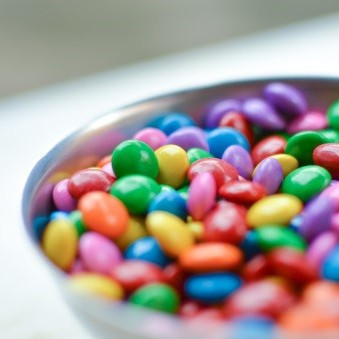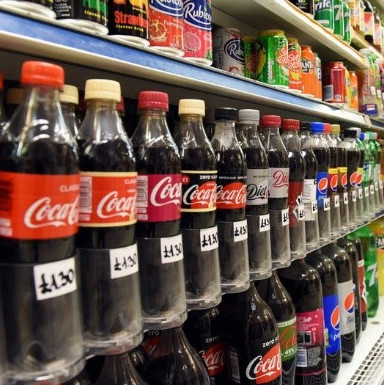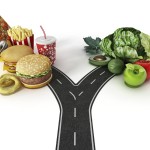Our work on health inequalities:
The four health behaviours of Diet; Alcohol; Smoking; Physical activity that we research are socially patterned (i.e.) certain behaviours are more likely to occur in specific socio-economic groups.
Here at the BHRU, we seek to establish which interventions have the potential to change behaviour across all socio-economic groups which can potentially help to reduce the socio-economic patterning of behaviour.
Click on the images below to read more about the work we have been doing in this area:
Key Studies:
In two studies, we found that people are less likely to take chocolates when they are placed an extra 50cm away. This effect seemed to work similarly regardless of a person’s current level of self-control. This shows that placing unhealthy food further away may be a simple but effective way to reduce the likelihood of consuming these snacks. Effect of snack-food proximity on intake in general population samples with higher and lower cognitive resource. Hunter, Hollands, Couturier, Marteau, 2018. This study looked at how increasing the price of non-alcoholic drinks could influence purchases of alcoholic drinks, such as beer, wine and cider, in supermarkets. We found that increasing the price of sugary drinks could increase purchases of lager, while increases in the price of diet drinks could increase purchases of beer, cider and wines. Effect of increasing the price of sugar-sweetened beverages on alcoholic beverage purchases: an economic analysis of sales data. Quirmbach, Cornelsen, Jebb, Marteau, Smith, 2018. People with lower self-control tend to drink more, smoke more, and eat more unhealthy food. Low self-control might also influence the success of interventions that aim to change these behaviours. We conducted a systematic review to assess whether individual differences in self-control influence the effectiveness of interventions to change alcohol, tobacco, and food consumption. Our findings show that 22 studies (41%) did not report differences in intervention effectiveness by self-control, 18 (33%) reported interventions to be less effective in those with low self-control, and 14 (26%) reported interventions to be more effective in those with low self-control. This pattern of findings did not differ from chance. So, whilst self-control often influenced intervention outcomes, there was no consistent pattern of effects. Does self-control modify the impact of interventions to change alcohol, tobacco, and food consumption? A systematic review. Stautz, Zupan, Field, Marteau, 2018 Looking at data from over 6,000 young people in the ALSPAC cohort, we found that: – Higher IQ at age 8 predicted having drunk alcohol, not smoking, greater fruit and vegetable consumption, and not being overweight at age 13 – Higher impulsivity at age 9 predicted having drunk alcohol and smoking at age 13 – Higher working memory at age 10 predicted not being overweight at age 13 These were all small effects. Our findings suggest that interventions that can improve childhood cognitive resources, such as improving access to enriching environments, education, and financial resources, could have small indirect effects on improving health behaviours. As differences in cognitive resources have been observed between individuals in higher and lower socioeconomic groups, this could potentially also help reduce health inequalities. Do Executive Function and Impulsivity Predict Adolescent Health Behaviour after Accounting for Intelligence? Findings from the ALSPAC Cohort. Stautz, Pechey, Couturier, Deary, Marteau, 2016. However, we found some differences between more and less deprived groups in terms of the influence of perceived control over behaviour (self-efficacy) on actual behaviour: This suggests interventions that do not require active engagement from people may be more effective at reducing health inequalities, as responses to these may be less likely to depend on attributes like perceived control over behaviour. Is the intention–behaviour gap greater amongst the more deprived? A meta-analysis of five studies on physical activity, diet, and medication adherence in smoking cessation. Vasiljevic, Ng, Griffin, Sutton & Marteau. 2016. However, our study suggests lower-priced supermarkets are unlikely to be disproportionately promoting unhealthy foods or stocking fewer healthier options compared to higher-priced stores. Supermarket Choice, Shopping Behavior, Socioeconomic Status, and Food Purchases. Pechey & Monsivais, 2015. This evidence suggests that whilst policies targeting promotions on less healthy foods might help people to have healthier shopping baskets, they would have little effect on reducing health inequalities caused by deprivation. Price promotions on healthier vs. less healthy foods: a hierarchical regression analysis of the impact on sales and social patterning of responses to promotions in Great Britain. Nakamura, Suhrcke, Jebb, Pechey, Almiron-Roig, Marteau, 2015. Our results showed: Why don’t poor men eat fruit? Socioeconomic differences in motivations for fruit consumption. Pechey, Monsivais, Ng, Marteau, 2014. This pattern of purchasing could contribute to the health differences we see between socioeconomic groups. Socioeconomic differences in purchases of more vs. less healthy foods and beverages: Analysis of over 25,000 British households in 2010. Pechey, Jebb, Kelly, Almiron-Roig, Conde, Nakamura, Shemilt, Suhrcke, Marteau, 2013. Does placing unhealthy snacks further away reduce the likelihood of consumption?
 There is a consistent “proximity effect” for food: people select and consume less food when it is placed further away from them. However, it is not known whether level of self-control impacts on how well the proximity effect works.
There is a consistent “proximity effect” for food: people select and consume less food when it is placed further away from them. However, it is not known whether level of self-control impacts on how well the proximity effect works.Would increasing the price of sugary soft drinks influence purchases of alcohol?
 The UK Government levy on sugary drinks producers began in April 2018, potentially influencing the cost of a large range of non-alcoholic beverages.
The UK Government levy on sugary drinks producers began in April 2018, potentially influencing the cost of a large range of non-alcoholic beverages.Does self-control alter the effectiveness of interventions to change alcohol, tobacco, and food consumption?

Do cognitive resources in childhood predict teenage behaviour?
 Cognitive resources encompass abilities including IQ and processes involved in planning, monitoring, and revising goal-directed behaviour (e.g., impulsivity).
Cognitive resources encompass abilities including IQ and processes involved in planning, monitoring, and revising goal-directed behaviour (e.g., impulsivity).Is acting on intentions to change diet socially patterned?
 Bringing together data from previous studies, we found no evidence that those from more deprived groups are less likely to act on their intentions to change their behaviour, including changing their diet.
Bringing together data from previous studies, we found no evidence that those from more deprived groups are less likely to act on their intentions to change their behaviour, including changing their diet.
Is shopping in lower-cost supermarkets associated with less healthy purchases?
 Customers of lower-cost supermarkets tend to purchase less fruit and veg and more unhealthy foods than customers of higher-cost supermarkets.
Customers of lower-cost supermarkets tend to purchase less fruit and veg and more unhealthy foods than customers of higher-cost supermarkets.Are more deprived households likely to buy supermarket promotions?
 In our study which looked at price promotions in stores, we found that people were more likely to purchase less-healthy food items on promotion, rather than healthier items, and that less deprived households were more likely to buy foods on promotion than more deprived households.
In our study which looked at price promotions in stores, we found that people were more likely to purchase less-healthy food items on promotion, rather than healthier items, and that less deprived households were more likely to buy foods on promotion than more deprived households.Why don’t poor men eat fruit?
 We looked at whether there were differences by Socioeconomic Status (SES) in how much people liked fruit. We were interested in whether this might explain socioeconomic differences in self-reported fruit consumption.
We looked at whether there were differences by Socioeconomic Status (SES) in how much people liked fruit. We were interested in whether this might explain socioeconomic differences in self-reported fruit consumption.
Do deprived households have less healthy shopping baskets?
 We looked at the purchases of 25,000 British households in 2010 to get a detailed picture of socioeconomic differences in the purchases of food and drink and found:
We looked at the purchases of 25,000 British households in 2010 to get a detailed picture of socioeconomic differences in the purchases of food and drink and found:
Publications related to socio-economic patterning of behaviour:
2019
2018
2016
2015
2014
2013









